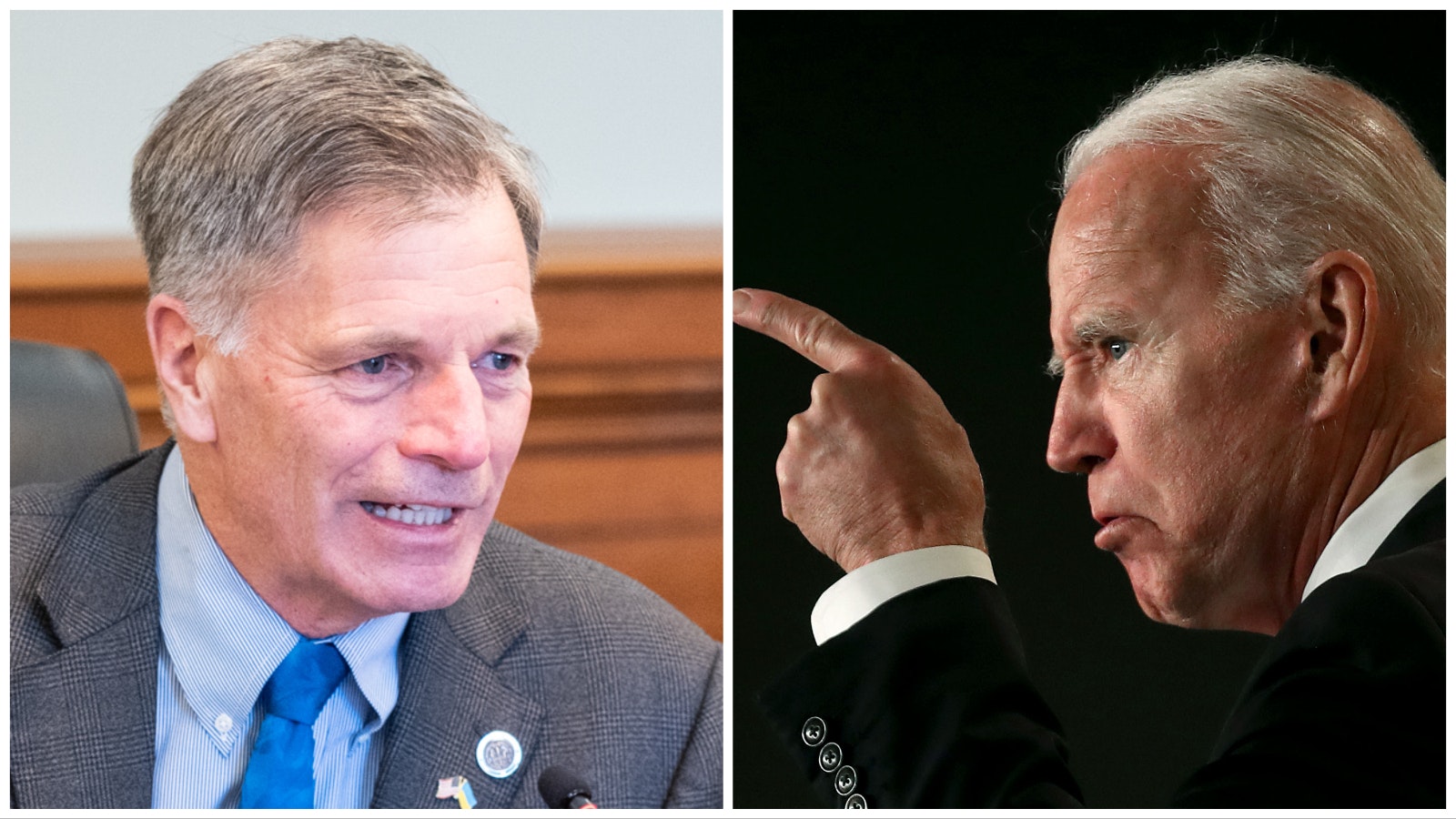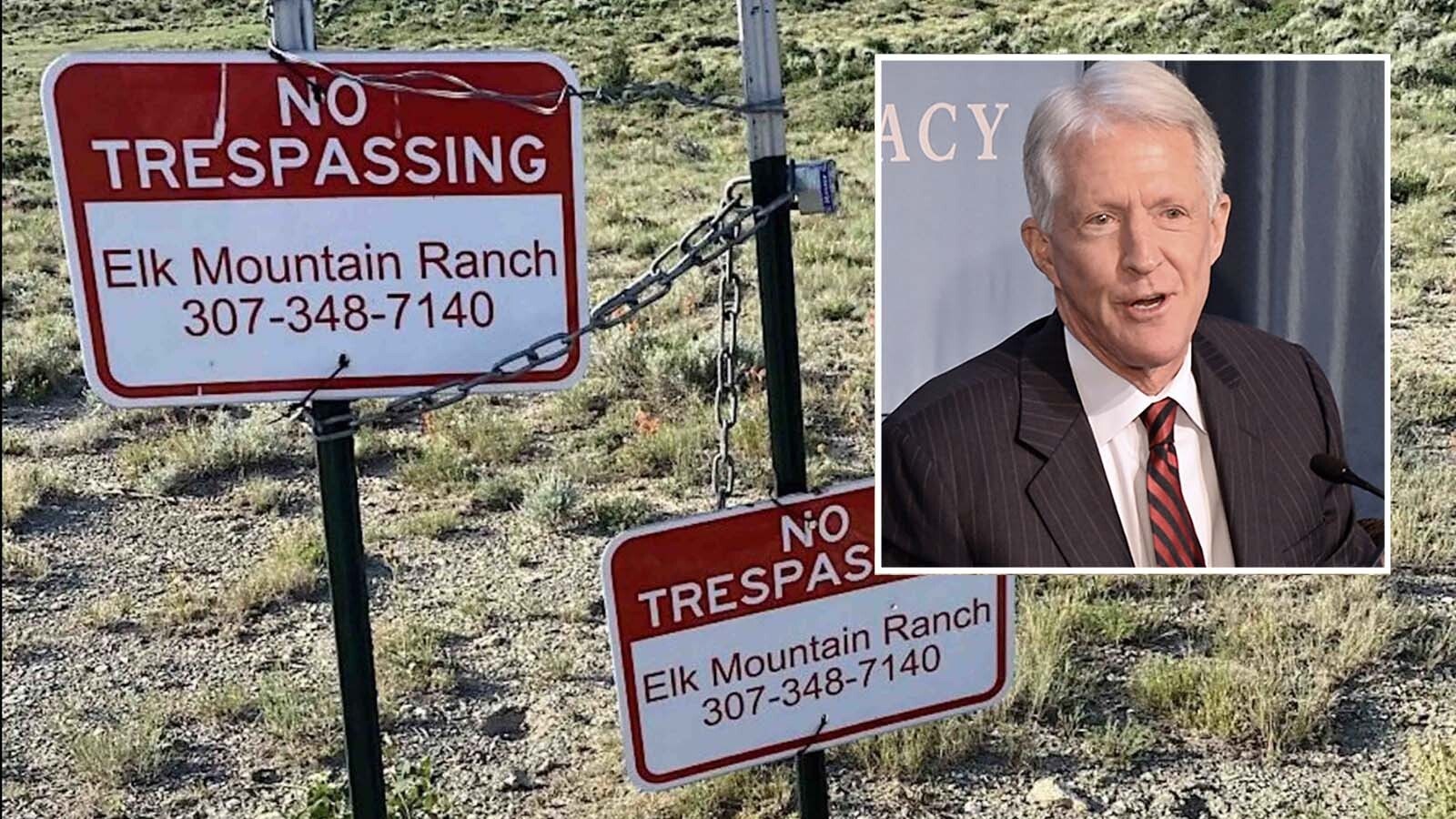A Federal judge’s decision Wednesday to block the Biden administration’s Clean Water Act rule will save Wyoming’s ranchers some major headaches, says a longtime Wyoming rancher and industry insider.
“We’ve just gone back and forth” with the application of the Clean Water Act, said Jim Magagna, executive vice president for the Wyoming Stock Growers Association. “One administration interprets it one way, and the next interprets it the other way, and it’s just been a huge uncertainty for us.”
Gov. Mark Gordon also hailed the judge’s decision in a Facebook post Wednesday.
"I am pleased the multi-state effort that Wyoming was a part of led to this decision to block the Biden Administration's WOTUS (Waters of the United States) rule in 24 states,” Gordon said in the post.
“This is a major victory for farmers, ranchers and private property owners' rights,” he added. “This rule would have improperly expanded federal authority over small bodies of water, like ponds and streams, that are far from navigable, far from the original intent of the law.
“Such an unwarranted expansion of federal authority could have harmful consequences for agricultural operations. The decision is a big win for those who champion state and individual control over land-use decisions."
North Dakota Judge Shut It Down
U.S. District Judge Daniel L. Hovland of Bismarck, North Dakota, halted the ruling, which was set to be implemented through the U.S. Environmental Protection Agency (EPA) and the Army Corps of Engineers.
The Biden administration claimed it intended to protect small streams and wetlands across the country through the Clean Water Act.
The judge’s decision halts the ruling pending a lawsuit filed by 24 states, including Wyoming. A previous injunction stymied the rules in Texas and Idaho.
“We’re pleased to see ranches and farmers in Wyoming and 23 other states are now getting the same protection as those in Texas and Idaho,” Magana said.
In addition to Wyoming, Hovland’s injunction is effective in Alabama, Alaska, Arkansas, Florida, Georgia, Indiana, Iowa, Kansas, Louisiana, Mississippi, Missouri, Montana, Nebraska, New Hampshire, North Dakota, Ohio, Oklahoma, South Carolina, South Dakota, Tennessee, Utah, Virginia and West Virginia.
Wait And See What SCOTUS Decides
Going beyond the injunctions and the lawsuit, Magagna said nothing should be decided until a pending case before the U.S. Supreme Court regarding the Clean Water Act is resolved.
That case involves “a landowner who basically created a pond” in the Idaho panhandle and was told an EPA permit was needed to do so.
In 2004, Michael and Chantell Sacketts bought land and started building a house on a plot near Priest Lake, Idaho. They were later told their development of the property violated the Clean Water Act because of its proximity to a lake.
The Supreme Court is expected to rule on that case soon, and it stands to set a precedent that could clarify the parameters of the Clean Water Act, Magagna said, particularly as it applies to “navigable waters.”
“We’re hoping that a decision in the Sacketts case will resolve that issue,” he said.
That’s important, he said, because inflow into “navigable waters” has been the standard by which the Clean Water Act has been enforced, including heavy fines for violators.
Clarity Needed
It’s never been made clear whether that means direct flow from agricultural water development into a navigable body of water, or secondary flow, such as through an underground source, he said.
“For ranchers working out there on the land, that could mean anyplace where there’s a pooling of water,” Magana said. “They’ve got to ask themselves, ‘Could I get caught up (in a clean water violation)?’”
To be fair, the Clean Water Act should apply to water projects that have “a significant nexus with a navigable waterway and relative permanence,” he said.
“If we do move forward (with the Biden administration’s rule), we’re requesting that a water project has to meet both those tests before it could be deemed subject to the jurisdiction of the Clean Water Act,” Magagna said.
That would help relieve the uncertainty that farmers and ranchers go through every time the White House changes hands, he said.
While the Trump administration’s actions on the Clean Water Act included exemptions for agricultural applications, the Biden White House has done away with those, Magana said – repeating a patter that’s gone on for decades.
“Something could be perfectly legal when a rancher starts a project, but by the time he finishes it, it’s against the law because there’s a new administration in the White House,” he said.
Mark Heinz can be reached at mark@cowboystatedaily.com.





